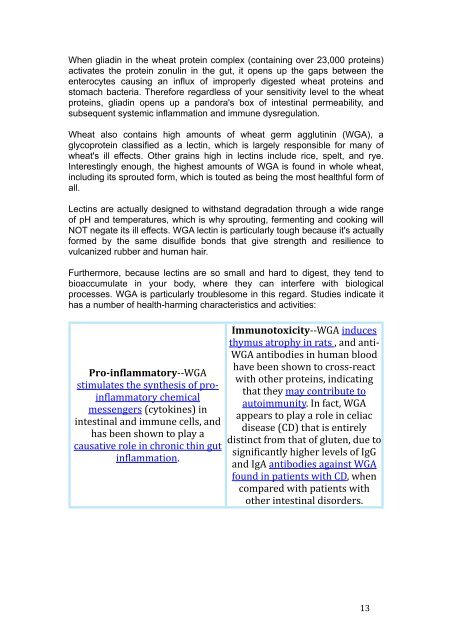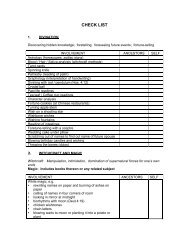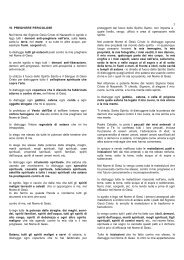ADD ADHD.pdf - Kanaan Ministries
ADD ADHD.pdf - Kanaan Ministries
ADD ADHD.pdf - Kanaan Ministries
- No tags were found...
You also want an ePaper? Increase the reach of your titles
YUMPU automatically turns print PDFs into web optimized ePapers that Google loves.
When gliadin in the wheat protein complex (containing over 23,000 proteins)activates the protein zonulin in the gut, it opens up the gaps between theenterocytes causing an influx of improperly digested wheat proteins andstomach bacteria. Therefore regardless of your sensitivity level to the wheatproteins, gliadin opens up a pandora's box of intestinal permeability, andsubsequent systemic inflammation and immune dysregulation.Wheat also contains high amounts of wheat germ agglutinin (WGA), aglycoprotein classified as a lectin, which is largely responsible for many ofwheat's ill effects. Other grains high in lectins include rice, spelt, and rye.Interestingly enough, the highest amounts of WGA is found in whole wheat,including its sprouted form, which is touted as being the most healthful form ofall.Lectins are actually designed to withstand degradation through a wide rangeof pH and temperatures, which is why sprouting, fermenting and cooking willNOT negate its ill effects. WGA lectin is particularly tough because it's actuallyformed by the same disulfide bonds that give strength and resilience tovulcanized rubber and human hair.Furthermore, because lectins are so small and hard to digest, they tend tobioaccumulate in your body, where they can interfere with biologicalprocesses. WGA is particularly troublesome in this regard. Studies indicate ithas a number of health-harming characteristics and activities:Pro-in'lammatory-‐-‐WGA stimulates the synthesis of pro-in5lammatory chemical messengers (cytokines) in intestinal and immune cells, and has been shown to play a causative role in chronic thin gut in5lammation. Immunotoxicity-‐-‐WGA induces thymus atrophy in rats , and anti-‐WGA antibodies in human blood have been shown to cross-‐react with other proteins, indicating that they may contribute to autoimmunity. In fact, WGA appears to play a role in celiac disease (CD) that is entirely distinct from that of gluten, due to signi5icantly higher levels of IgG and IgA antibodies against WGA found in patients with CD, when compared with patients with other intestinal disorders. 13
















